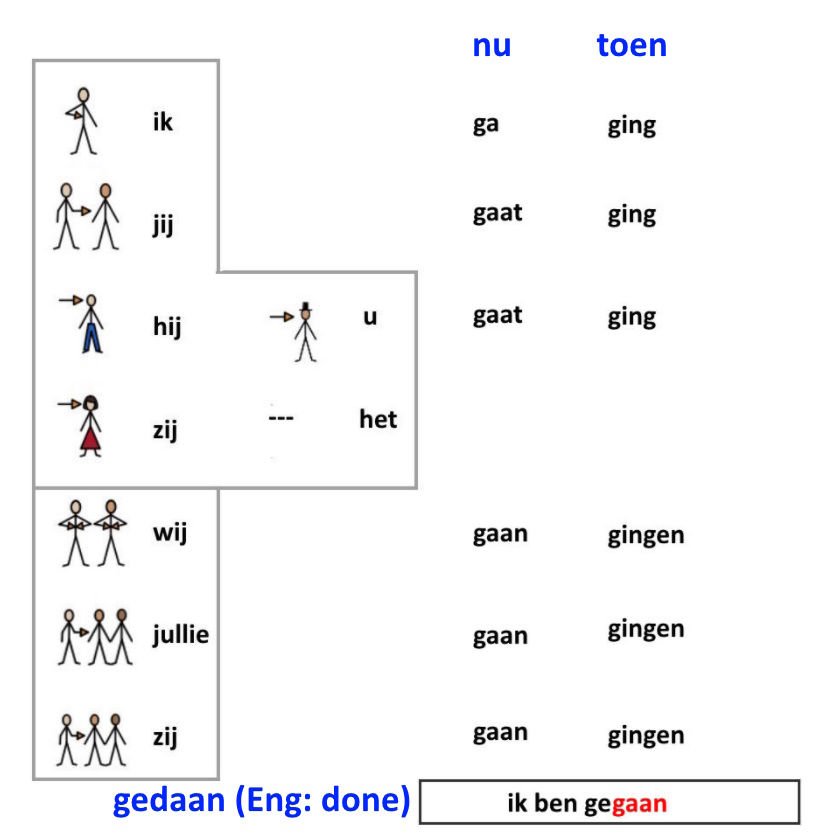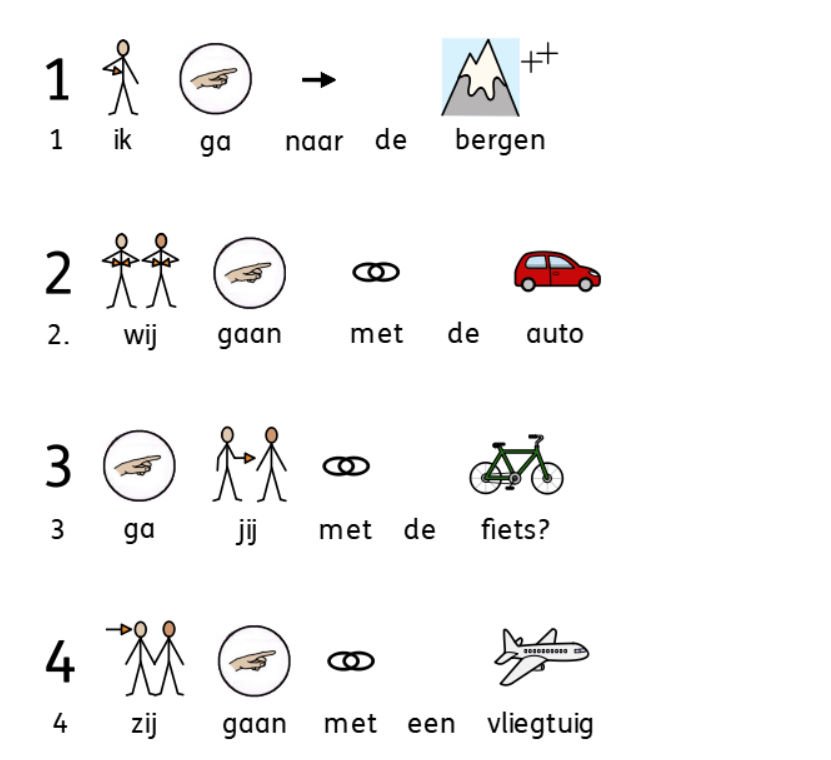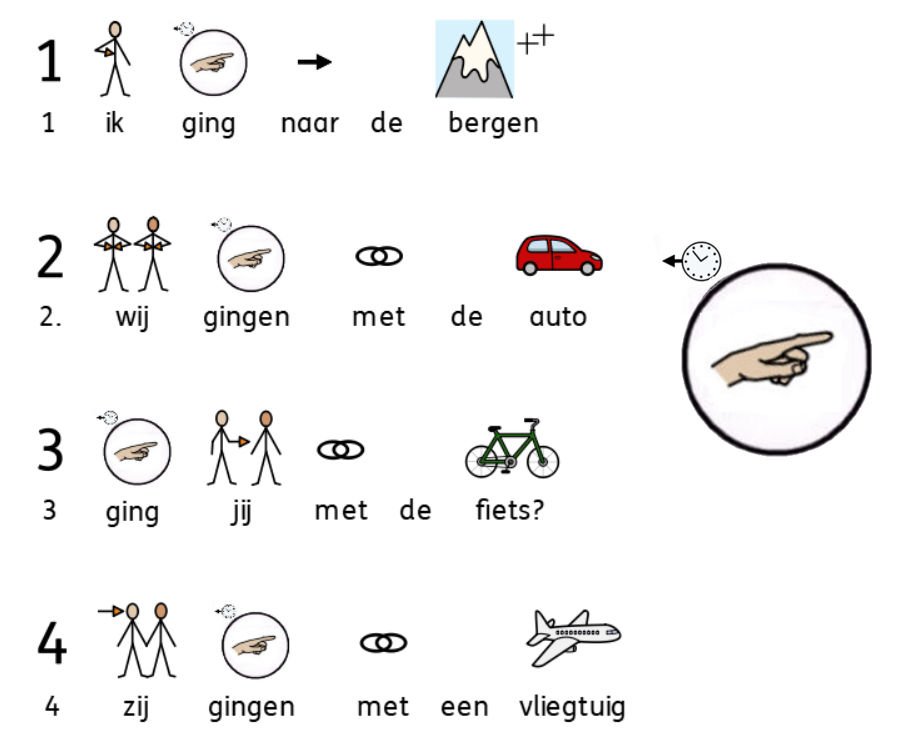Most important irregular verbs
In Dutch, some of the most important irregular verbs are those that are frequently used in everyday conversation and writing. These verbs often have unique conjugations that don't follow the regular patterns. Here's a list of some of the essential irregular verbs in Dutch, along with their infinitive form, simple past form, and past participle form:
"zijn" (to be) - was/waren - geweest
"hebben" (to have) - had/hadden - gehad
"gaan" (to go) - ging/gingen - gegaan
"komen" (to come) - kwam/kwamen - gekomen
"kunnen" (can, to be able to) - kon/konden - gekund
"moeten" (must, to have to) - moest/moesten - gemoeten
"willen" (to want) - wilde/wilden or wou/wouden - gewild
"zeggen" (to say) - zei/zeiden - gezegd
"doen" (to do) - deed/deden - gedaan
"laten" (to let, to allow) - liet/lieten - gelaten
"zien" (to see) - zag/zagen - gezien
"krijgen" (to get) - kreeg/kregen - gekregen
"denken" (to think) - dacht/dachten - gedacht
"weten" (to know) - wist/wisten - geweten
These verbs are fundamental to mastering Dutch verb conjugation and are used in a wide variety of contexts. Knowing how to properly conjugate these verbs can significantly improve your ability to communicate effectively in Dutch.
<<<


